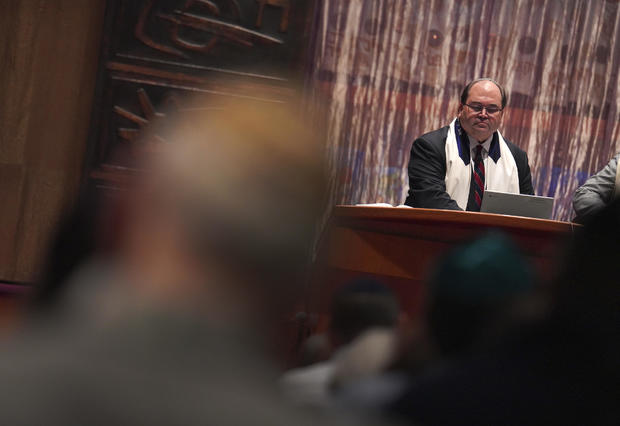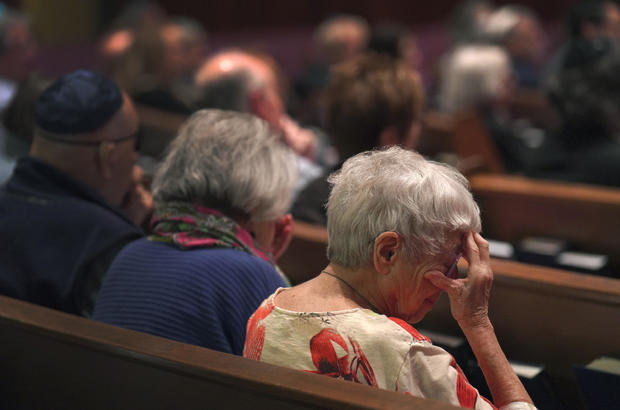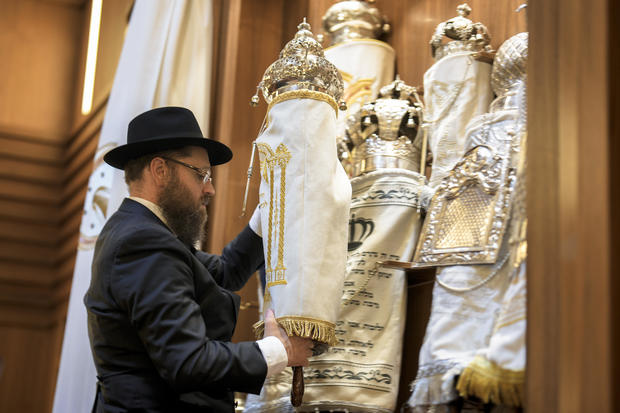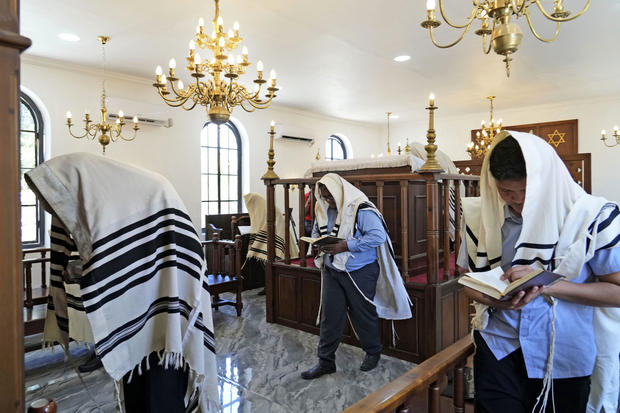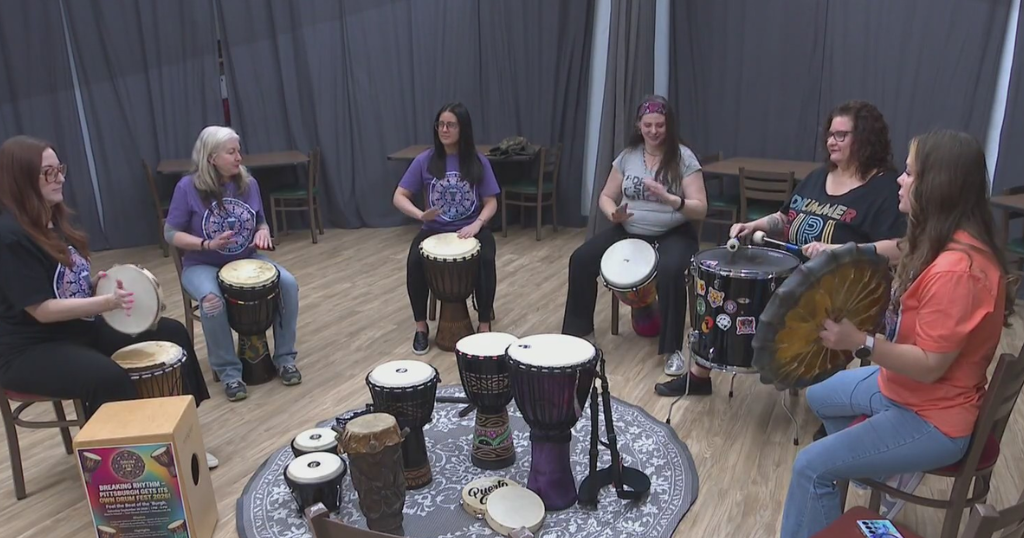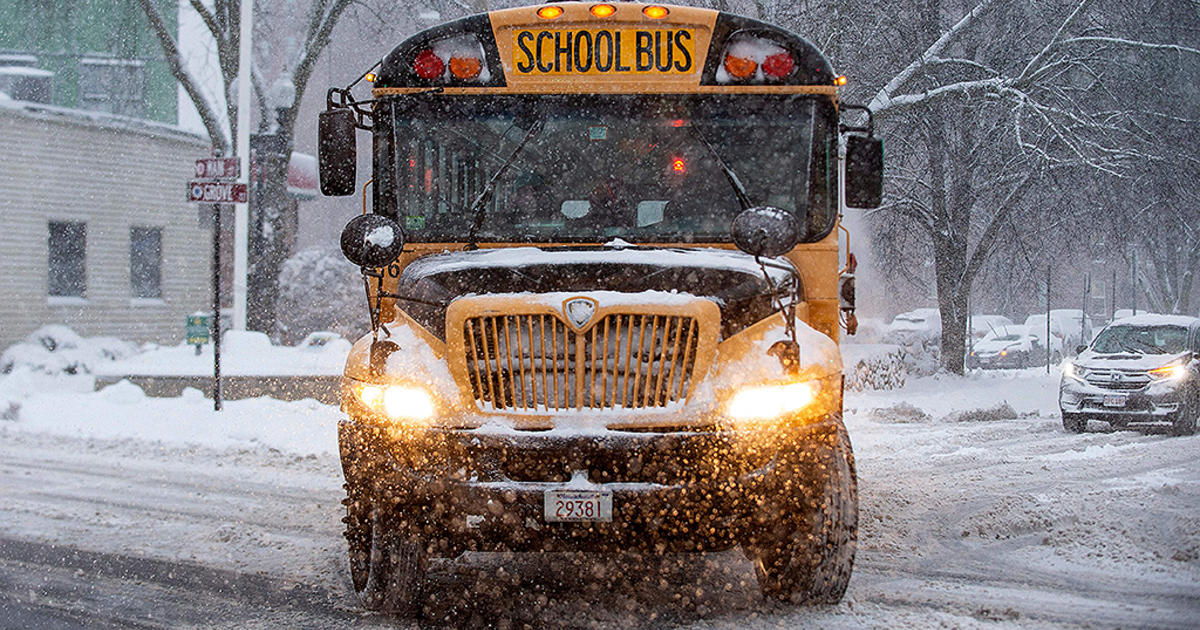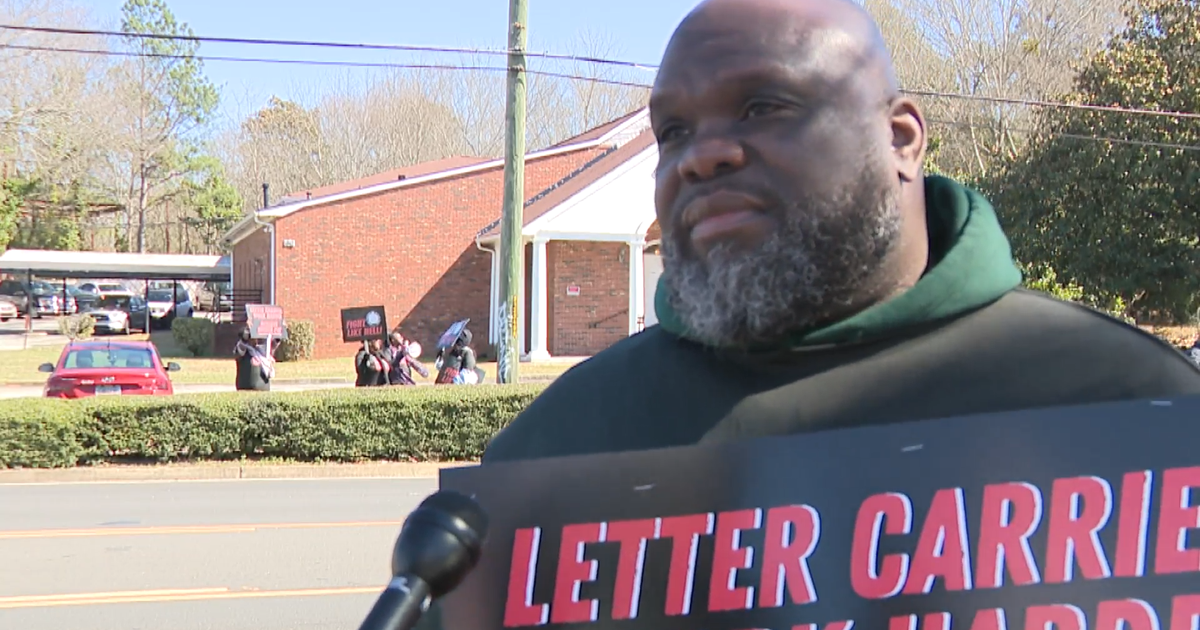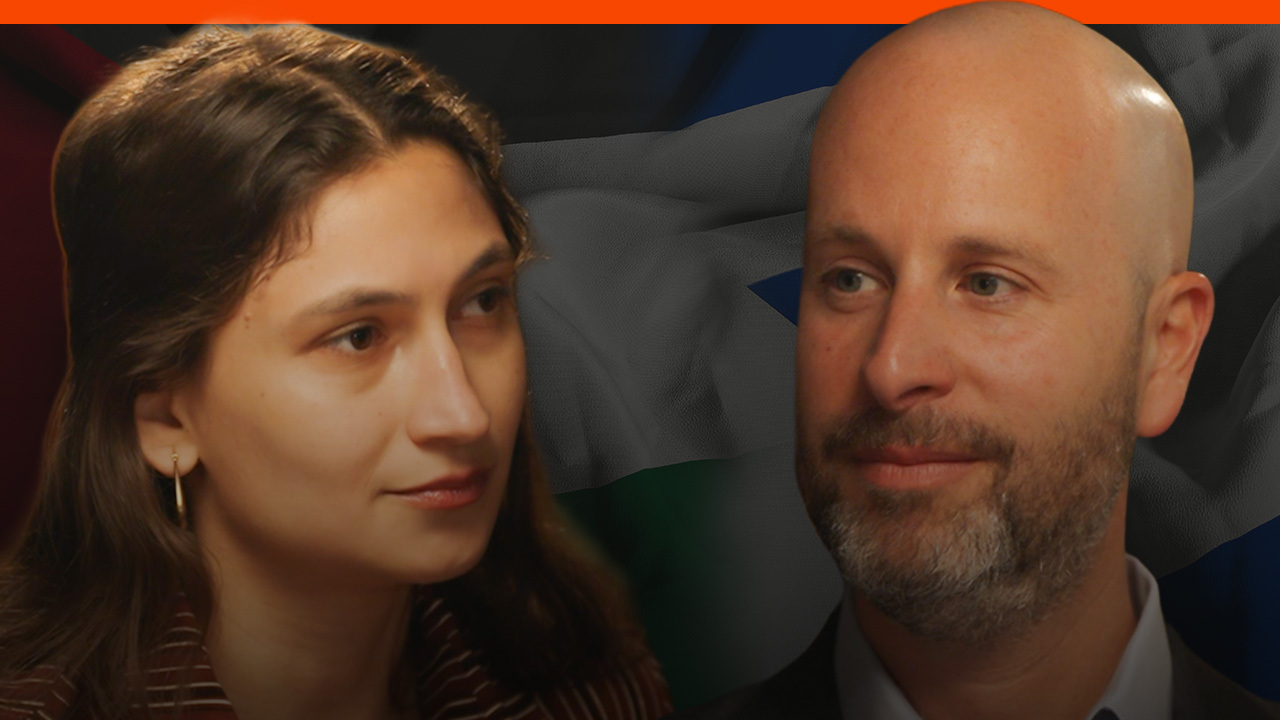Jewish people around the world grieve and pray for peace in first Shabbat services since Hamas attack
Jews in communities far from Israel gathered at synagogues this weekend for their first Shabbat services since Hamas militants attacked Israel, igniting an ongoing war. Rabbis led prayers of peace and shared grief with their congregations. At many synagogues security was tight.
The deadly Hamas attack is not just another geopolitical event for Jewish people, explained one U.S. rabbi. It is drudging up generations of visceral trauma, especially in Pittsburgh – the city scarred by the deadliest antisemitic attack in U.S. history.
"More Jews were killed last Shabbat … than on any other day since the Holocaust," said Rabbi Daniel Fellman of Temple Sinai, during the first service following the violence in Israel. "It isn't that Hamas wants the destruction of Israel. It's that Hamas wants the destruction of you and me."
"The world deserves better, the Palestinian people deserve better and we need to do better."
Despite that anguish, Fellman's congregation – and others across the world – heeded the words of an Israeli soldier who had urged worshippers "to go sing and dance, go make sure that every person in the world hears us singing this prayer this Shabbat."
Fellman preached on the biblical story of the first murder – that of Abel by his brother Cain – and urged an understanding that all people are siblings, including Jews, Christians and Muslims.
"They are all our brothers and sisters, and when one of us hurts, we all hurt. If we can't see that we share this earth, that we share God's love, ... then we are doomed to live the curse of Cain and Abel again and again."
For Rabbi Seth Adelson of Congregation Beth Shalom in Pittsburgh, receiving the news about the attack last Saturday morning as he headed to worship brought back traumatic memories of Oct. 27, 2018. That Sabbath morning was shattered by news that a gunman attacked the nearby Tree of Life synagogue and killed 11 people from three congregations meeting there.
The difference, he said in an interview, was "we just could not comprehend the idea of a shooting at a synagogue in Pittsburgh." By comparison, last week's Hamas attack was "tragic and horrifying and gut-wrenching, but it was believable."
After the Pittsburgh synagogue attack, "we felt the whole community embraced us," Adelson said. "One of the things that many of us are feeling right now is that we are not feeling that embrace. We are really a community in pain and we don't feel support."
But they are carrying on with the rhythms of ritual life, Adelson said. Saturday's service at Beth Shalom includes a bar mitzvah, a young man's coming-of-age initiation.
"Sometimes we celebrate, even as we know we must grieve," he said.
"A very challenging moment for the Jewish people"
Police in Germany's capital, Berlin, visibly increased security in front of synagogues as worshippers flocked to Shabbat prayer services.
The heightened safety measures come in reaction to global tensions triggered by Hamas' attack, and Israel's subsequent bombing of Gaza, as well as calls on social media to violently protest in front of Jewish institutions in Germany.
At Berlin's Chabad community in Berlin's Wilmersdorf neighborhood, the street leading to the synagogue and adjacent community center was blocked to traffic. Police and private security service patrolled on the sidewalk as congregants arrived at the house of worship.
Some men wore their yarmulkes hidden under baseball hats, while others didn't wear any skullcaps until they entered the synagogue.
Rabbi Yehuda Teichtal, head of the local Chabad community, told The Associated Press on Friday evening that "this is a very challenging moment for the Jewish people."
"At the same time we will stand together with resilience and complete trust in God for a positive future," Teichtal added. "There is nothing more than the terrorists want than to demoralize us — they've achieved the opposite."
His remarks came as hundreds of Berliners assembled in front of another temple, the Fraenkelufer Synagogue, on the eve of Shabbat to protect it and the prayer service held inside from possible attacks.
They held up signs with pictures of Israelis who are being held as hostages by Hamas in Gaza, lit candles, and waved Israeli flags. Some posters read "Jewish life matters" and "Never again is now."
An Indonesian rabbi at the only synagogue in the world's most populous Muslim-majority nation called for peace Saturday and an end to the fighting in the Israel-Hamas war.
"We call and pray for peace," Modechai Ben Avraham said, "Because when peace is restored to our lives, we can carry out any activity and worship peacefully."
The rabbi, who led prayers at Shaar Hashamayim synagogue in Tondano city on Sulawesi island, said the conflict has not caused anxiety or a sense of fear and isolation for the synagogue and its worshippers "because people know our community only focuses on carrying out religious services."
Shaar Hashamayim is currently the only synagogue in Indonesia; it has served a local Jewish community of some 50 people in Tondano since 2019. Judaism is not recognized as one of the country's six major religions, but its practices are allowed under the Indonesian constitution.
There are an estimated 550 Indonesian Jews, mostly live in North Sulawesi, a province home to more than 2.6 million people, who are mainly Christian in the mostly Muslim archipelago nation.
As his parents hunkered down in their safe room in northern Israel, Juval Porat tried to remain focused on preparing a mix of joyful and comforting hymns for the first Shabbat services at his Miami Beach, Fla., synagogue since Hamas' attack.
"For the life of me, I'm not going to cry," the cantor said before Friday evening services in the stained-glass-filled Temple Beth Sholom. "I need to be strong, so that other people can cry."
Tears did flow as Porat and the rabbis led the 300 congregants in praying for peace, for safety for the people of Israel and the soldiers defending it, and especially for the hostages.
"It's the first time I cried," said Michael Conway, who wore a white kippah decorated with blue doves as symbols of peace.
The prayers in Hebrew and English were "a chance to release the pent-up emotion of the week, and to be with a lot of people who knew how I feel," he added.
In her sermon, Senior Rabbi Gayle Pomerantz named those emotions — fear, anger, shock that Israel and the Jewish people are facing "an existential moment."
"We want to pummel Hamas with our own hands," she told the congregation sitting in silence after she shared testimonials from survivors of a now-devastated kibbutz where, as a student, she had celebrated many Shabbats.
"But hate will never repair what is broken," she said, urging the faithful instead to show solidarity and to support Israel's relief efforts.
Rabbi Robert Davis struck the same note as he lit a candle to commemorate the hostages and those killed by Hamas — "the infants and children and teens, the soldiers, the concert-goers, and people waiting for the bus."
"There aren't enough candles," Davis said. "Let us be the lights."
